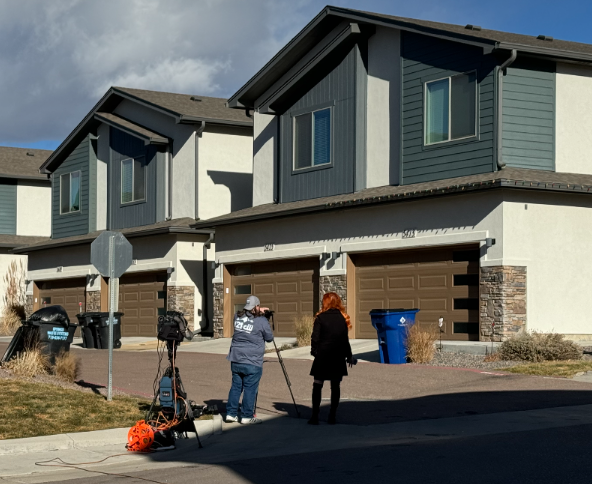Overwhelming Support for Stricter Voter Identification Requirements for Mail-In Ballots and In-Person Voting
Please Follow us on Gab, Minds, Telegram, Rumble, Gab TV, GETTR, Truth Social
The CD Media Big Data Poll finds voters in Arizona are set to approve at least two key ballot measures this November, while others fall short. The results indicate voters in the Grand Canyon State are inclined to strengthen voter identification requirements, as well as make it more difficult to amend the constitution and pass future ballot initiatives.
In November, voters will decide whether to allow in-state tuition for residents without legal citizenship status. If approved, the ballot measure would necessarily repeal related provisions of Proposition 300, which passed in a statewide referendum back in 2006. As of now, voters are leaning toward opposing the ballot measure.
Only 34.3% say they'll vote "Yes" to support and 47.7% would vote "No" to oppose passage, with 18.0% undecided. Of those most certain to vote, the measure is failing 49.5% to 34.5%. Republicans (63.3% to 24.1%) are more likely than Democrats (31.8% to 50.3%) and Independents/Others (45.3% to 29.5%) to vote "No" over "Yes".
In the wake of the 2020 election and statewide audit, Arizona has been at the forefront of the battle over election reforms. Voters will also decide whether to require a date of birth and voter identification number for mail-in ballots and to eliminate a two-document alternative to photo identification for in-person voting.
The CD Media Big Data Poll finds overwhelming support for this ballot measure, with 62.5% saying they will vote "Yes" to approve it and only 23.4% intend to vote "No", with another 14.1% undecided. Republicans (78.5% to 11.5%) and Independents/Others (63.3% to 18.8%) are more likely than Democrats (43.3% to 41.3%) to vote "Yes" over "No".
‘NO AD’ subscription for CDM! Sign up here and support real investigative journalism and help save the republic!‘
By a 45.4% to 23.5% margin, voters are leaning toward creating the Office of Lieutenant Governor, which will be elected on a joint ticket mirroring the presidential election. However, the ballot measure has not yet achieved majority support and 31.1% remain undecided.
Voters in Arizona are also set to approve the ballot measure to change voting threshold requirements to a supermajority (60%) rather than a simple majority on all future ballot initiatives. A 53.3% majority say they will vote "Yes" compared to only 18.0% who will vote "No", with 28.7% undecided.
"Overall, the ideological mood of the electorate is leaning toward Republicans and more conservative policy," Big Data Poll Director Rich Baris, said of the results. "Independent and third party voters are more aligned with Republican voters on these four ballot initiatives."
As of July 24, 2022, eight statewide ballot measures were certified in Arizona for the midterm elections on November 8, 2022. The Arizona Right to Reproductive Freedom Initiative failed to gather the 356,467 valid signatures required and thus did not make the ballot. Below are the four of eight gauged by the CD Media Big Data Poll, to include instructional prompts used to explain each to respondents.
- In-State Tuition for Non-Citizen Residents Measure: Repeals provisions of Proposition 300 (2006) to allow in-state tuition for non-citizen residents.
- Voter Identification Requirements for Mail-In Ballots and In-Person Voting Measure: Requires date of birth and voter identification number for mail-in ballots and eliminates two-document alternative to photo ID for in-person voting.
- Create the Office of Lieutenant Governor Amendment: Creates the office of Lieutenant Governor to be elected on a joint ticket with the governor and to succeed the governor in the case of a vacancy.
- 60% Supermajority Vote Requirement for Constitutional Amendments and Ballot Initiatives Amendment: Requires a three-fifths (60%) supermajority vote to pass ballot initiatives (both statutes and constitutional amendments) and legislatively referred amendments.
The CD Media Big Data Poll for the Arizona Midterm Elections was conducted by Big Data Poll and interviewed 1,298 likely general election midterm voters statewide via Peer-2-Peer SMS/OSP from July 16 to July 18, 2022. The overall survey sampling error is ± 2.7% at a 95% confidence interval. It’s important to note that sampling errors for subgroups are higher. Results are weighted to represent statewide voter file demographics to include gender, age, race and region. The proprietary likely voter model is determined by both self-reported likelihood and 4-cycle vote history. The full crosstabs can be viewed on MarketSight and methodology on Google Sheets.
More CD Media Big Data Poll in Arizona
- CD Media Big Data Poll: Blake Masters Holds 11-Point Lead In Arizona Republican Primary For U.S. Senate
- CD Media Big Data Poll: Kari Lake Holds Double-Digit Lead In Republican Primary For Governor In Arizona
- CD Media Big Data Poll: Biden Approval in Arizona Craters Among Hispanics, Disapproval Nears 60%
- CD Media Big Data Poll: Kari Lake, Katie Hobbs In Tight Race For Arizona Governor
- CD Media Big Data Poll: Mark Kelly Fighting for Political Life in U.S. Senate Against Blake Masters
- CD Media Big Data Poll: Republicans Lead Generic Ballot By 9 Points In Arizona

























They need to get rid of mail-in ballots. Their only purpose is for committing fraud.
If this passes, some Leftist judge will nix it.